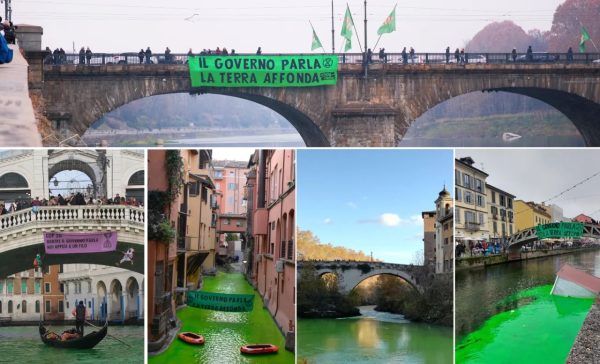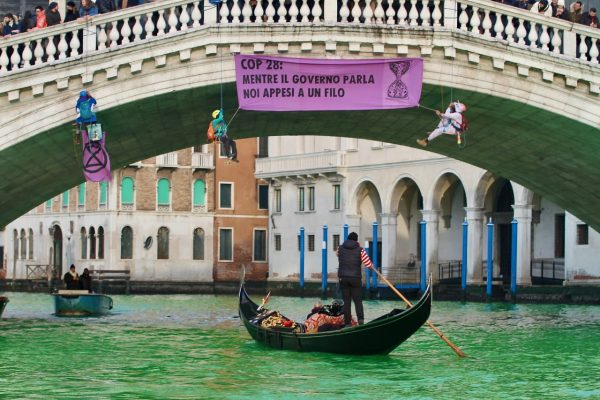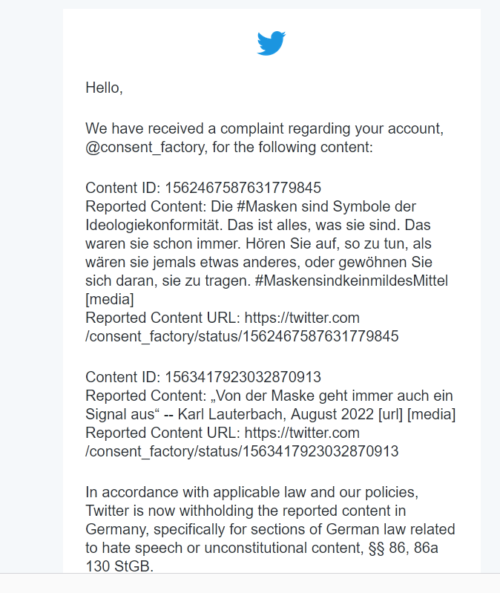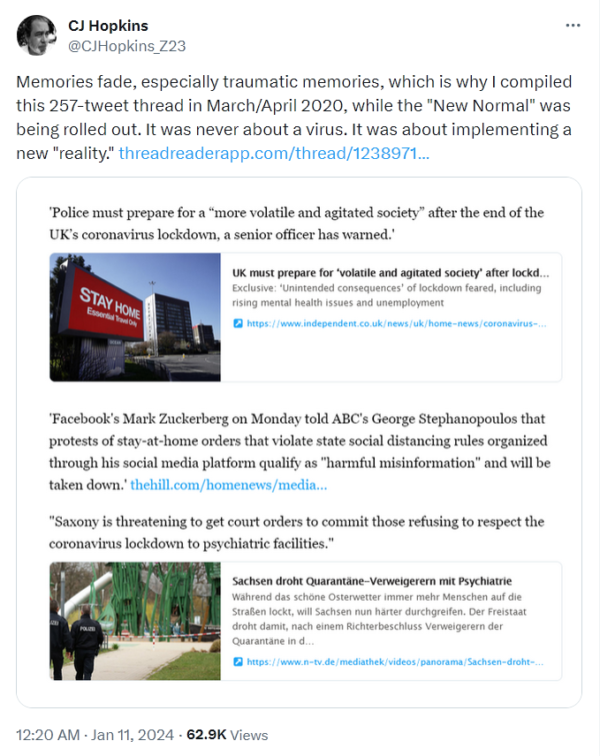In a nutshell
- Current efforts intercept an estimated 0.1 percent of laundered money
- Compliance costs for financial institutions topped $274 billion in 2022
- A more sophisticated approach will use the latest technologies
Money laundering needs to be combated effectively. Terrorists, illegal arms dealers, traffickers, drug cartels, corrupt politicians, kleptocratic regimes and all sorts of other criminals wash their dirty money through the global financial system, threatening our societies. While difficult to quantify, the United Nations Office on Drugs and Crime (UNODC) estimates that between two and five percent of global gross domestic product, which was $105 trillion in 2023, is laundered each year.
Around the world, governments and supranational organizations have worked hard to put regulations in place that could grapple with the problem. Along with financial institutions, they have built up complex and highly sophisticated frameworks for anti-money laundering (AML) and countering the financing of terrorism (CFT) over the past three decades. Progress has come notably in Europe, where six ambitious directives have been implemented, creating the impression that the situation is largely under control.
But will this panoply of nobly intended laws, regulations, policies, tools and institutions live up to expectations?
When it comes to evaluating the effectiveness of current efforts to combat money laundering and the financing of terrorism, there are surprisingly few evidence-based studies addressing the subject. One may almost wonder whether this research topic is being implicitly censored because it could be politically controversial. Another reason may be that the existing anti-money laundering systems come off badly in terms of cost-benefit analyses.
The stiflingly high costs of regulation
Tallying up all the costs incurred by the fight against financial crime is a complicated endeavor. Costs can be direct or indirect, tangible or intangible, fixed or variable, one-time or ongoing.
Some scholars have made a distinction between the “AML-complex” and the “compliance industry,” albeit noting that the two are deeply entangled. The global anti-money laundering system is based on the premise that public and private institutions should closely cooperate on both the national and international level. Private partners are supposed to perform the prevention, detection and reporting tasks, while public partners do the analytic and punitive part of the job.
A myriad of actors is involved in the AML-complex, costing taxpayers a lot of money. These funds go to the development and maintenance of an ever-growing number of supervisory agencies, financial intelligence units, interconnected central beneficial ownership registers, intergovernmental policymaking bodies, law enforcement authorities and a host of other big anti-money laundering bureaucracies. And then there are the costs of the intricate regulatory and legislative processes through which AML rules – norms, procedures and technical standards – are agreed upon before being issued and then constantly updated.
Banks hire armies of compliance officers
Having one foot in the AML-complex and one in the compliance industry, private financial institutions are in a tricky spot.
Supposedly, they are well-positioned to see fraudulent schemes before anyone else does. That is why, from the start, they were given such a central role in anti-money laundering. For example, they must maintain complete “Know Your Customer” (KYC) files and systematically report to law enforcement agencies any suspicious person, company or possible network, as well as any questionable activity, transaction or pattern.
To comply with the stringent requirements to prevent money laundering and the financing of terrorism, banks had to hire armies of compliance officers. They also turned to the fast-growing RegTech (Regulatory Technology) industry, which provides them with the latest solutions to meet their ever more complex regulatory obligations.
Over the years, banks’ compliance costs to combat money laundering have increased dramatically. According to estimates, they have ballooned worldwide to $274.1 billion in 2022, up from $213.9 billion in 2020. Moreover, fines for compliance failures are skyrocketing. Reportedly, they surged 50 percent in 2022, reaching hundreds of millions of dollars for the biggest global companies.
Alarming regulatory overreach
Apparently, in many cases, financial institutions were sanctioned because they improperly implemented identity verification or anti-money laundering customer screening. Severe punishment can be inflicted upon banks even though no actual money laundering occurred under their supervision. Regulators are overreaching to penalize banks in the absence of a crime – and despite having effective in-house KYC procedures in place – simply because these institutions did not meet the regulators’ subjective standards of the ideal AML or CFT program, according to American lawyers Lanier Saperstein, Geoffrey Sant and Michelle Ng.
The three lawyers further criticized how the criterion for judging a bank’s effectiveness has shifted to the question of how much it had spent on compliance. Regulators simply seem to assume that the more bank money floods into anti-money laundering compliance, the fewer financial crimes will be committed. The same holds for the number of compliance officers: the more, the better. These assertions are completely unfounded
Higher costs for consumers
A full cost analysis would also require considering a range of economic costs created by anti-money laundering policies. To continue with the banking example, one can only agree with Mr. Saperstein, Mr. Sant and Ms. Ng that banks forced to spend substantial parts of their budgets on compliance no longer have this money available for their core business: providing loans and services to their clients. Even though banks pass some of their compliance costs on to customers, regulation could be partly responsible for a loss in competitiveness of a sector that has been struggling with low profitability for over a decade, especially in Europe.
Scared of sanctions, financial institutions tend to close the accounts of clients considered high-risk and to withdraw from business sectors or regions where money laundering poses the greatest threats. Such “de-risking” strategies are part of the reason some of the most vulnerable communities are excluded from the global financial system. These are precisely the populations that, according to the official narrative, the regulations seek to protect.
Another potential source of economic costs are regulation-induced distortions in firms’ investment decisions. Decades of increased opportunity costs for honest investors are nearly impossible to quantify. Yet they may account for substantial losses each year.
Negligible success in disrupting criminal financial flows
When it comes to the benefits, it is worth asking tough questions. For instance, do KYC and anti-money laundering regulations adequately protect consumers, investors and the overall financial system from financial crime? How much do they deter would-be criminals? How much of the illicit flows are recovered thanks to such checks?
A 2018 study by American political scientist Ronald Pol suggested that the overall impact of AML policy intervention on criminal finances is less than 0.1 percent – that is, absolutely negligible.
Mr. Pol’s findings are in line with those of a 2011 research report by the UNODC, according to which “much less than one percent (probably around 0.2 percent)” of the proceeds of crime laundered via the global financial system are seized and frozen.
A 2023 Europol report confirmed what one could have suspected: terrorists, criminals and fraudsters always find ways to circumvent even the most complicated regulatory processes. Among others, they exploit cutting-edge technologies much faster than authorities can keep up.
If criminal enterprises are keeping 99.8 percent or more of their dirty money, it is hard to call the current regulatory systems efficient. Mr. Pol acknowledged that his data and methodology could be subject to criticism. Money laundering is a secretive activity, so accurate information on illicit flows is difficult to obtain and estimations cannot be definitive.
Nevertheless, the gap between policy intent and results is huge. A similar critique also came from Christopher Giancarlo, former chairman of the United States Commodity Futures Trading Commission (CFTC).
The question is: if it turns out that honest banks, businesses and households (that is, taxpayers, consumers and ordinary citizens) are penalized far more than criminal enterprises, what is the point of maintaining such an unsuccessful system? What is the weight of an ideological component in that decision or, rather, the desire of a technocratic elite to push forward a paradigm of transparency?
Disappointment because ‘everyone is doing badly’
Unexpectedly, another top financial regulator recently came to share Mr. Pol’s opinion that AML, in its present form, is “the world’s least effective policy experiment.” During a 2020 interview, David Lewis – the former executive secretary of the Financial Action Task Force (FATF), the most powerful global AML watchdog – said that despite efforts made by countries under FATF surveillance, “everyone is doing badly.” Seemingly, AML/CFT measures are often poorly implemented on a national level. Mr. Lewis lamented that some nations only want to avoid bad reports that put them on FATF’s list of low-scoring countries.
At a conference held in London in 2021, the ex-regulator reiterated his disgust with governments’ lack of willingness to truly understand and adequately fight the laundering of organized crime money. He went further and stated: “I’m fed up with protecting the integrity of the financial system. The truth is I don’t care about the financial system, so why should I care about the integrity of it.”
Hearing these words from a former head of the agency responsible for setting global AML standards is startling. As Mr. Lewis himself reminds us, the mandate of the FATF is precisely to protect the integrity of the financial system. What could come across as a rather cavalier or provocative attitude is an admission of system failure. “As AML professionals we all need to take more risks and stop just ticking the boxes,” Mr. Lewis demanded.
Scenarios
Very likely: More effective tools
Emerging trends in the anti-money laundering world show that the message has been received.
First, standard country-focused approaches seem to be slowly giving way to an insistence on a comprehensive system. The European Union’s recent decision to create its own Anti-Money Laundering Authority (AMLA) goes in that direction. The new institution, whose location is still unclear, will directly supervise certain types of credit and financial institutions. EU-level supervision coming on top of the multitude of already existing layers of national surveillance could signal a welcome paradigm shift.
Second, the so-called legacy approaches to combatting money laundering are about to be eclipsed by “modern forensic inquiry” approaches.
Legacy approaches are based on step-by-step procedures that financial institutions have to apply, such as identity verification, consumer screening, suspicious activity detection, enhanced due diligence, alerts and suspicious activity reports, among others. Poor communication between groups or departments and lack of flexibility are typical obstacles to efficiency.
Modern approaches aim to break down the barriers to effective information sharing – including the “myths and realities that remain around tipping off and data protection,” as demanded by former FATF boss Mr. Lewis.
Data pooling and collaborative analytics between financial institutions and their supervisors could soon become the norm. Anti-money laundering will be increasingly treated as a data analytics problem.
Already now, revolutionary methods of forensic inquiry offer banks and authorities far-reaching tools to comb through ever-larger data sets and identify patterns and trends more effectively. The idea is not just to produce information, but to gain insight.
Although it is early days for predictive analytics, it looks like this will be a major trend in AML/CFT. To predict what might happen in the future, artificial intelligence and machine learning techniques will be used in combination with all kinds of data, including information on historical consumer behaviors, events and relationships. Ideally, the likelihood of fraud and other financial crimes should be detected before they even occur.
As authorities work smarter, the question will remain: will new technologies such as big data analytics, automated pattern recognition and, more generally, predictive intelligence, fix the efficiency problem of the current AML/KYC systems, or will they merely add another layer of problems to existing ones – notably in terms of Orwellian surveillance? More than ever, honest citizens might be those who endure the highest costs, be they financial or democratic.












